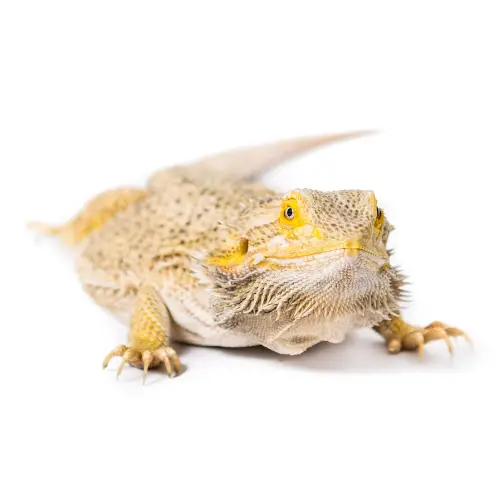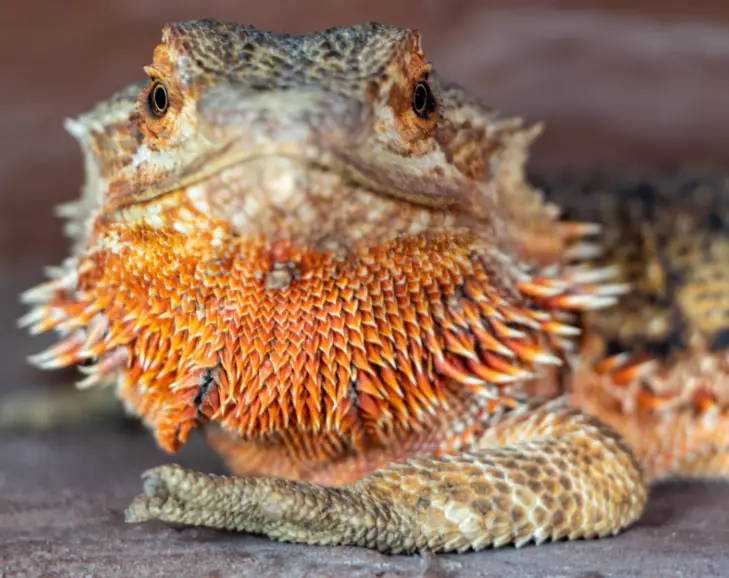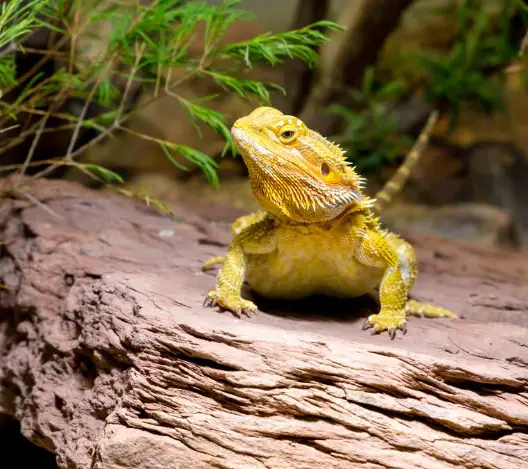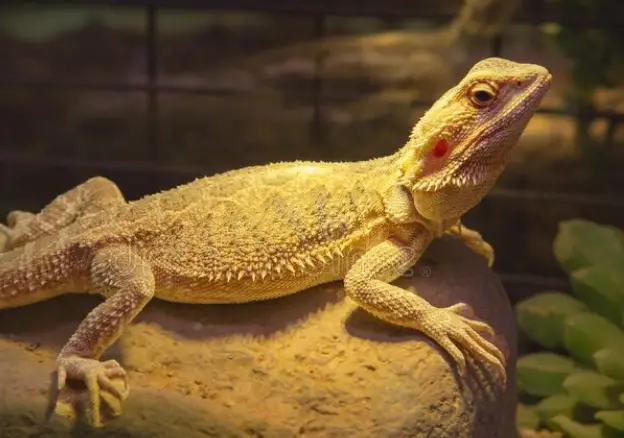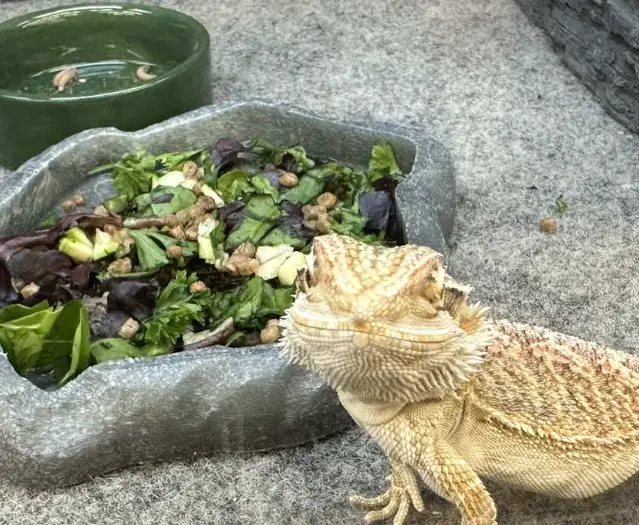Bearded dragons are popular reptile pets not only because they are docile, but also because they are easy to take care of. However, one of the challenging aspects when it comes to owning a bearded dragon is determining if it is gravid or not. Knowing if your bearded dragon is gravid is essential so you can provide the appropriate care, especially if you are planning to breed them. In this article, we will discuss the signs of a bearded dragon being gravid, how to care for gravid bearded dragons, and other important information about bearded dragon breeding.
What does it mean if a bearded dragon is gravid?
Gravid is a term used to describe a female bearded dragon that is carrying eggs. If a female bearded dragon mates with a male and fertilization occurs, the eggs will develop inside her body. Bearded dragons are oviparous, meaning that they lay eggs instead of giving birth to live offspring.
What are the signs of a bearded dragon being gravid?
Determining if a bearded dragon is gravid takes some observation. Here are some of the signs you need to look for:
Bulging Belly: A gravid bearded dragon will have a swollen belly, which is due to the eggs developing in her uterus. This is usually the most noticeable sign of gravidity in bearded dragons.
Change in Appetite: A gravid female bearded dragon may show a decrease in appetite or lack of interest in food. This is because carrying eggs can put pressure on the digestive system, which makes it difficult for the bearded dragon to eat as much as they normally would.
Increased Resting: A gravid bearded dragon will require more rest than usual. You may notice your pet spending more time under their basking spot or in their hideout. This is because carrying eggs can make a bearded dragon feel tired and lethargic.
Scratching and Digging: Female bearded dragons might show signs of scratching and digging around their enclosure when they are gravid. They do this to find a place where they can lay their eggs when the time comes. Therefore, they will need a proper nesting box with a suitable substrate to lay their eggs.
Restlessness: Towards the end of their gravidity, female bearded dragons could become restless and uneasy. They may also show signs of pacing around their enclosure, attempting to find the perfect spot to lay their eggs.
Aggression: A female bearded dragon can become more aggressive than usual when she is gravid. This is because carrying eggs can make her very defensive and protective of her territory.
How to care for gravid bearded dragons?
Once it is confirmed that a bearded dragon is gravid, it is essential to provide them with the best care possible to ensure good health for both the mother and her eggs. Here’s a list of things you should do to take care of your gravid bearded dragon:
1. Increase nutrients and calcium: A gravid female bearded dragon requires a balanced diet that is high in nutrition and calcium. You should feed them a variety of healthy greens, vegetables, and insects daily. Calcium supplementation is also essential to ensure the eggs’ proper development inside the gravid bearded dragon.
2. Provide a nesting box: Females bearded dragon need a special nesting box to lay their eggs. This box should be big enough to accommodate the bearded dragon and filled with a suitable substrate for egg-laying.
3. Keep the enclosure clean: A clean enclosure is essential for gravid bearded dragons. Ensure that their enclosure is thoroughly cleaned and the substrate replaced during the nesting period to avoid any bacterial growth.
4. Monitor the temperature and humidity: Bearded dragons require specific temperature and humidity levels to survive. Temperature and humidity levels should be regulated in the nesting box and enclosure to provide the gravid female with optimal conditions to support their eggs’ proper development.
5. Give them enough space: During the nesting period, female bearded dragons require a bit more privacy and enough space to move around. Therefore, the enclosure should be spacious enough for the bearded dragon to move around comfortably.
How long does it take for a bearded dragon to lay eggs?
The gestation period for bearded dragons is quite long and usually takes anywhere from 4-8 weeks. Within this period, gravid female bearded dragons could be restless and show the signs noted earlier in the article. Once the eggs are ready to come out, the female bearded dragons will look for the perfect nesting spot to lay their eggs. The duration it takes for this egg-laying process to be complete can range from hours to days.
How many eggs can bearded dragons lay?
The number of eggs a gravid female bearded dragon can lay depends on factors such as age, size, and health. The average number of eggs a bearded dragon lays could be anywhere from 10-20 per clutch, with some exceptions, like bigger breeds that can lay more.
Can bearded dragons be bred without professional help?
Yes, bearded dragons can be bred without the help of a professional. However, breeding bearded dragons requires adequate research and preparation, along with essential equipment for egg-laying, such as nesting boxes, substrate, and temperature and humidity gauges.
Conclusion
In conclusion, understanding the signs of a gravid bearded dragon is essential to ensure appropriate care for both the mother and her eggs. Creating the right environment for the gravid female by providing good nutrition, enough space, and a nesting box will help the eggs to develop correctly. Breeding bearded dragons can be a fun and rewarding experience, but it comes with its challenges. With the right preparation and knowledge, breeding bearded dragons can be a successful undertaking.
